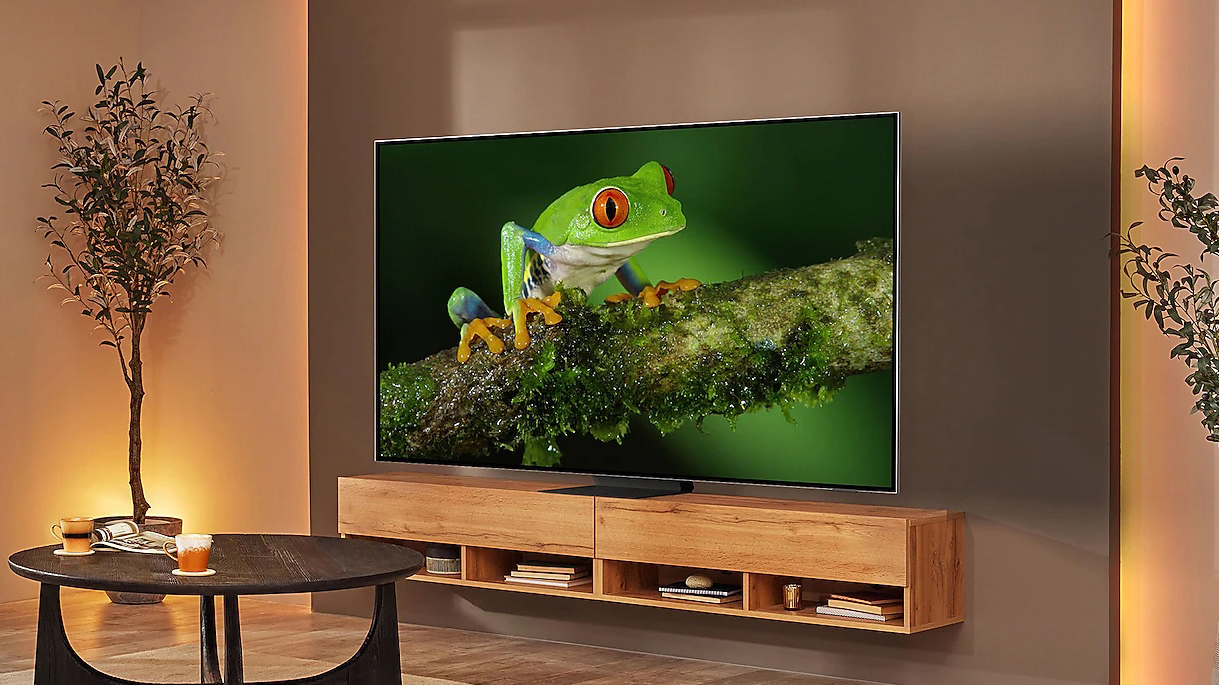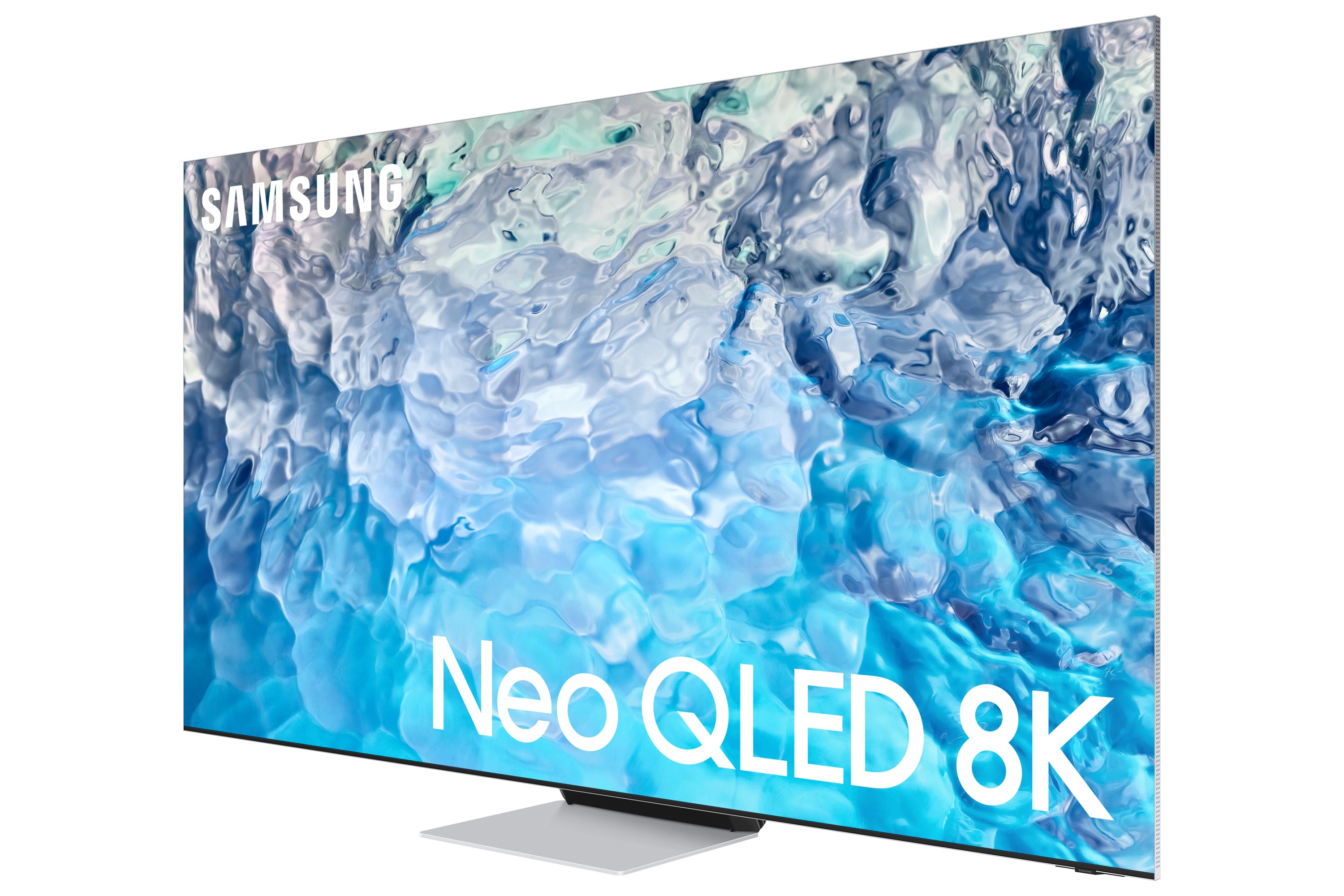8K TVs might be killed by EU energy rules – but maybe the world can live with that
The super resolution revolution may not be televised yet

The 8K TV revolution may have to be put on ice, after it emerged that the next wave of power-hungry displays could be banned in parts of Europe.
Industry website FlatspanelHD highlighted the issue for manufacturers, noting that the European Union was preparing to introduce stricter energy requirements on TVs from March next year
The new rules set out in the 2023 Energy Efficiency Index (EEI) include a lower maximum level for power consumption that is set to be imposed on all new TVs produced, with industry insiders fearing that the increased power needs of 8K TVs would push them over the threshold, effectively preventing TVs that feature the latest higher resolutions panels, such as Samsung's QN800B, being sold in the region.
Outlining the headache that the new requirements could create for manufacturers, industry body The 8K Association posted a statement on its website, saying: "Unless something changes, March 2023 will spell trouble for the emerging 8K industry with the 8K EU Regulatory Ruling. That’s when new EU power consumption regulations are set to go into effect.
"The power consumption limits on 8K TVs (and microLED-based displays) are set so low that essentially none of these devices will pass. It not only means a failing grade but a requirement that these devices cannot be sold in the EU. That will have a very chilling effect on all players working to develop the 8K ecosystem, including consumers whose access to devices and innovation will now be restricted."
The European Union is set to review the 2023 EEI by the end of this year, meaning that there remains a chance that the upcoming energy requirements could be revised.
That won’t have stopped some manufacturers making contingency plans, with reports that some makers are hoping that the ruling will only apply to the display’s default picture mode (as is the case now).
Sign up for breaking news, reviews, opinion, top tech deals, and more.
Should that be the case it would mean manufacturers could navigate past the new limitations by applying out-of-the-box settings with reduced brightness on the new TVs, while providing prompts when users try to access better performance settings, warning them of the increased energy requirements required.

Analysis: Now isn’t the moment for the 8K era to shine brightly
The advent of 8K has been somewhat stunted by a number of major factors.
According to market analysts Omdia, 8K TVs accounted for just 0.15% of all TV shipments in 2021, which works out as being as little as 350,000 units being sold globally – 65% or around 227,500 units being Samsung models and the majority shipped to China.
The supply chain crisis and general lack of available compelling content in the format have been clear issues for uptake. While the first of those problems has started to dissipate, that second issue still remains a major stumbling block for making early 8K TV adoption look worthwhile.
Few linear TV broadcasters or streaming services around the world have a roadmap for starting widespread transmissions in 8K, with mainly having barely scratched the surface with 4K HDR at this stage.
Large-scale sporting event’s such as the Olympics often fuel demand for larger TV’s and new picture advancements. But while the 2006 World Cup helped usher in the HD era for broadcasters in a big way, its notable that talk of this year’s tournament in Qatar being presented in 8K hasn’t progressed much beyond the test broadcasts that were offered during Brazil 2018.
None of the big five major streaming services meanwhile look like they’re in any sort of hurry to implement higher resolution content, with the likes of Hulu still only at the stage of offering HDR on limited amounts of its library.
These content bellwethers all illustrate why the world isn’t yet ready for an 8K revolution, but the new proposed EU legislation points to a perhaps an even bigger issue for 8K adoption and a reckoning for consumer tech in general.
Most consumers will nowadays purchase new products knowing that there’s an environmental cost to replacing their gadgets and are upgrading with more consideration before consigning their devices to landfills.
But the cost of living crisis coupled with dramatic rises in energy prices across Europe means there’s now also a growing consideration from consumers on just how much power that new fancy, eye-melting bright TV will be costing them when their hefty electric bill comes in, making this intervention from the EU perhaps a timely one.
While these new rules are likely to be painful for manufacturers, it will inevitably discourage brands from allowing inefficient devices to hit the market which is something that will ultimately be to everyone’s benefit.
It’s clear the tech and ecosystem surrounding 8K needs to mature – its time may come, but right now perhaps isn’t its moment to shine bright. Certainly we expect this year's Black Friday TV deals to continue to be dominated by the best 4K TVs.

Kevin Lynch is a London-born, Dublin-based writer and journalist. The author of Steve Jobs: A Biographic Portrait, Kevin is a regular feature writer for a number of tech sites and the former Technology Editor for the Daily Mirror. He has also served as editor of GuinnessWorldRecords.com and has been a member of the judging panel for the BAFTA British Academy Video Game Awards. Alongside reviewing the latest AV gear, smartphones and computers, Kevin also specialises in music tech and can often be found putting the latest DAWs, MIDI controllers and guitar modellers through their paces. Born within the sound of Bow Bells, Kevin is also a lifelong West Ham fan for his troubles.